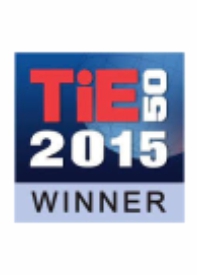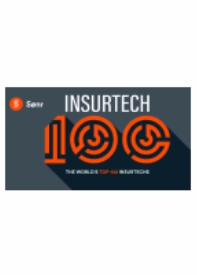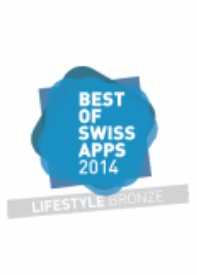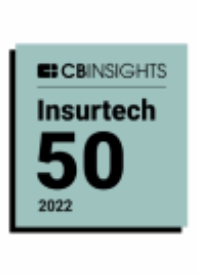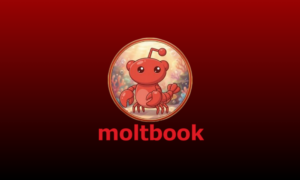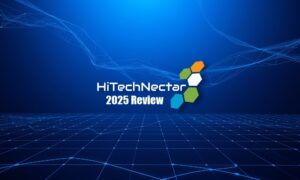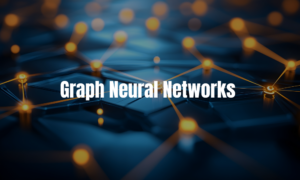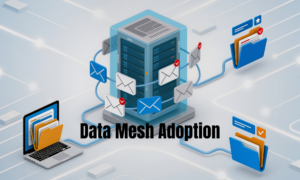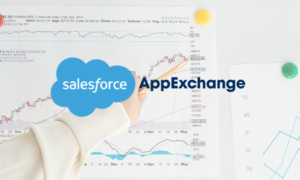Host: Hello everyone, welcome to another episode of ExtraMile by HiTechNectar, an interview series that aims to bring industry leaders closer to the audience. I’m your host Sudakshina and we’re here to discuss the latest technologies, cybersecurity trends, risk mitigation practices, expert insights and a lot more.
In today’s episode, we’re excited to host Peter Ohnemus, President and CEO of dacadoo, a pioneering digital health company that is making health measurable and actionable.
dacadoo combines AI behavioral science and glamification to help people improve their well-being through personalized insights. Peter is a seasoned entrepreneur with a track record of scaling innovative companies and today we’ll dive into dacadoo’s mission, the science behind the technology and what’s next for digital health.
Hello Peter, it’s a pleasure to have you with us today and how are you doing?
Peter: I’m doing very well and thank you so much for hosting me today and I’m excited about the interview. Thank you for asking.
Host: Same here. So, dacadoo’s mission is to make health measurable and actionable. What was the inspiration that led you on this path and how will it change the face of global health over the next decade?
Peter: Yeah, so I mean, I think one of the very big changes now, which I call the Gutenberg moment of digital health, is until now health was understood by doctors and nurses and us, including myself, normal people, we didn’t understand health so well and I think in where we are going now with AI and digital health and digital health engagement, I think we’re going to take the consumer to a new level of understanding. So, basically what you can understand, you can improve, and we are seeing a very strong interest in people’s personal health interest after COVID.
So, over the last few years, we now have over 6 billion smartphones globally on the street and people can track their steps. So, basically that’s a beginning. So, suddenly people start, you know, talking with friends about, I do so many steps and, you know, this is, you know, one of the, you know, what I call digital biomarkers.
So, basically in the future with our smartphones, with IoT devices, we will be able at very low cost, integrated part of our life to track our health in real time.
Host: That was really a powerful vision. So, next, your health score is a transformative tool in digital health. Can you explain how it computes an individual’s health status from biometric, lifestyle and psychometric data and what makes it different from other health metrics?
Peter: Yes, I think that’s a very, very important point. So, we started working out in 2010 on creating a global proxy of health. We call it the health score.
So, we have spent the last 15 years, we have invested over 100 million dollars in research and development, and we have filed over 200 patents. So, the health score is a proxy of your health, as I mentioned before. It integrates who you are, how you live and how you feel.
So, this is how, you remember, Da Vinci’s drawing of the man, you know, about 530 years ago. So, this is what we call the holistic view of health. So, basically, you’re looking at digital biomarkers, your lifestyle, so this could be your blood values, this could, you know, on all these different angles of data, your sleeping quality, your nutrition, your stress level, your, you know, environmental, you know, environment around you, etc.
So, as we move forward, we will see more and more machine learning and AI getting a better grasp and understanding of human health and our lifestyles and dacadoo was built to provide people with a holistic view of your health. So, our idea is a baseline of health, which we call the health score and then what you can understand, you can improve. So, in dacadoo generation 5, we have now programmed in what’s called my health score potential.
So, let’s say the health score is a number from 1 to 1,000. As I said before, it integrates all of your biomarkers, your lifestyle and how you feel and then that’s about up to 100 data points and then we calculate your baseline health score, which is a number from 1 to 1,000. After that, you can then start working on your health potential.
Let’s say you live in New York, and you see my health score is 400, I’m 50 years of age and everybody else who are 50 years of age in New York might have a health score of 560. I’m just making up a number, but to explain, then my health score potential will help me with AI and machine learning trying to improve my overall health. I personally believe health is the most important asset we got.
You know, you can have all the money in the world if you are in bad health or in bad shape, you know, money won’t help you. So, there are three things which I think is, you know, a right to everybody on the planet and that’s good health, that’s enough to eat every day and access to fresh water and, you know, my motivation with dacadoo is to try to help people looking after their health and understanding their health.
Host: That was really fascinating, Peter, to know how you have simplified complex data into something so user-friendly yet meaningful.
Peter: Thank you so much.
Host: The GBS is a fascinating innovation for retailers. How does it analyze shopping habits to provide nutritional insights and what kind of impact have you seen so far from users or partners?
Peter: Yeah, so, GBS stands for the grocery basket score and as you know by now, we worked over the last 15 years on an integrated understanding of your health. A very important thing is what you eat, and it doesn’t matter each culture, they have their local behaviors. Some countries might eat more meat, other countries might eat more fish, other countries might have a more green plate and so on.
What we want to do with the grocery basket score is to integrate it in with the retailers. So, all retailers today globally, they have so-called point systems. So, this is points that you collect when you buy something at the bigger supermarkets.
So, what we are trying to do is to score the basket in real time. So, of course, there exist apps where you can take a picture with your phone and you can write down what you have been eating. But we have seen globally that users get very easily tired of taking pictures and trying to write down what they eat.
So, we took it from the other side. We wanted it to be convenient for the consumer. We want it to be integrated into their life.
So, we created a grocery basket score where we look at the nutrition content, salt, sugar, saturated fat, non-saturated fat, what kind of vitamins, iron, etc. So, we create a holistic view of your health, as you know by now, and then we integrate the grocery basket score. So, globally, I would say from the 60s up till today, we changed a lot of our nutritional behavior.
And we see now, after COVID, that a lot of consumers are looking for not only better health, but also for a healthier nutrition. So, people are more interested in getting higher level of protein intakes, vitamins, in case of women, iron, which is very, very important. I, myself, I have five daughters.
And it’s very important that we all try to find a good balanced nutrition basket. And this is also in the interest of the retailers, because the retailers become a natural part of, you know, my healthy nutrition.
Host: That’s a really smart way to connect everyday choices to long-term health. The company uses AI, behavioral science, and gamification to keep users motivated. How do all this work together to drive real behavioral change? And what’s the most surprising trend in users you have been seeing?
Peter: Yeah, I would say, right now, we only use three percent of all healthcare data globally. This is according to IBM. I cannot prove it, but I think it’s probably pretty realistic.
So, going forward, as you said, behavioral change, behavioral economics, and understanding that healthcare data will make a huge difference to what I call healthspan. I know there are people who talk about lifespan, but lifespan, I don’t think, is the key goal. And I would explain why.
Because your lifespan is how long you live. Of course, that’s nice to live long. But if you are ill for many, many years and have chronic diseases, you have not such a quality of life overall.
So, at dacadoo, we believe your healthspan is very important. And human beings, they are a bit, you know, do I have to do this? And you know what I mean.
We all like to sit on the sofa, watch a good movie, sit on our smartphones. But we were made to move. And I don’t care if people say we were made to make 5,000 or 7,000 or 10,000 steps.
I’m just saying, we have lungs, we have oxygen, we need to, you know, activate that blood in your body. It’s like your vegetable garden. So, as we go forward, I think we need to find ways of gamifying health in a positive way and get people interested in looking after themselves.
There is no free health ticket. If you don’t move, and you consume too much alcohol, and you drink, you know, a bottle of wine per day, or you smoke 20 cigarettes, it is not so good for your health. So, at the end of the day, I think we need to find this balance, if you understand what I’m trying to say, between behavioral, you know, how do you behave?
And how is your health? And human beings have been gaming for thousands of years. So, the old Greeks, they were sitting around the tree 3000 years ago and would play a stone game.
So, human mankind has always been motivated by gamification. And so, I think this combination of behavioral science, gamification, motivation is very important.
Host: Amazingly said. With ISO 27001 and 27701 certifications, dacadoo prioritizes security. How do you balance user data privacy while still providing personalized health insight, especially in regulated sectors such as insurance?
Peter: That’s an excellent question. So, I personally believe data privacy is very important. So, your healthcare data is your data.
At dacadoo, we use very high level of security, encryption, etc. So, we don’t sell data, we don’t license any data, we don’t do any advertising on dacadoo. So, basically, the end user has a container, in that container is my healthcare data.
We then created different segregation levels, and what we created was the health score, because the health score doesn’t show the insurance, you know, my DNA or my blood values, because basically, it is in an integrated number. So, I think we will have some insurance products where you share some data with your insurance, we will have some consumers who doesn’t want to share data. So, you will have this different level of granularity of privacy, which I think is of key importance.
Trust is the most important word in health. And, you know, insurances, they live of trust. Healthcare operators live of trust.
Banks live of trust. Retailers live of trust. So, the highest you can earn is the consumer’s trust, and you should never misuse that trust.
Host: Definitely, trust is everything in health tech. Great to hear that you prioritize trust so much. You have mentioned gen AI integration and sustainability-focused features.
What’s next for dacadoo? Are there untapped areas in digital health you are excited to explore?
Peter: Yeah. So, we have been using AI since 15 years, so we didn’t start using, you know, AI at dacadoo yesterday. But I do believe that generative AI is a game changer.
So, we can slice and dice AI into, you know, different areas. And, you know, right now we are seeing, don’t get me wrong, the easy AI, so to do translations, to, you know, do some enhanced research, etc. But over time, these systems, in my view, will start creating, you know, a deeper relevance and a meaning into the data that they provide.
And this, I think that if you can create that substance with generative AI, it will be life-changing, and it will help a lot of people. So, we are missing right now 27 million doctors globally, and I’m not saying we can replace doctors with AI. But if we can get a better understanding of health, then, you know, that will help us substantially of, you know, and the need of going to the emergency room or going to see a doctor.
So, as we see the whole healthcare system, I’m sure you know, but National Health Service in England, you wait two years, you know, to get an operation, you have 7 million people waiting in the queue. So, the system we have built has made us live longer. It was partly because of soap first, and then vaccines and all this.
But overall, I think the next quality of life will be given through digitalization of health and generative AI. And again, back to better understanding will provide a higher quality level of life.
Host: That’s really exciting to know. Well, we are eager to see where you take this next. You have led several companies to success from Sybase to dacadoo.
What is the most important lesson you have learned about scaling innovation? And how do you create a culture of creativity in your team?
Peter: Yeah, I mean, when I founded my first company, it was in the database business. I sold my company to Mark Hoffman, who was the founder of Sybase. And he was, you know, he is the Vice Chairman of dacadoo.
And I think it has changed a lot how to, you know, run high growth companies. Back in the day, there was no internet. Today, everybody has access to the internet.
And young people like yourself, they will say, oh, you know, the internet has always been there. And of course, it hasn’t, and I’m just making fun. But I think the economy today is a lot more real time based, mission critical, interconnected.
And that has changed a lot on how you operate, motivate and lead your team members. So, for me, I always believe as a CEO, you should be a true reference for your employees and your clients, you should show strong leadership and empathy and understanding both for the clients and for your team. And that’s a balance act.
In today’s world, where everybody has access to all information on their fingertip, that of course becomes more challenging. And that doesn’t matter if it’s a public quoted company or private company. We see over the last two years, record CEOs who are stepping down from public quoted companies.
And I simply believe that’s also a sign of this new, you know, higher, faster, you know, world around us, we will get used to it, it will take some training and leading a public quoted company 30 years ago or leading a public quoted company today, I do believe is different. But there’s one thing which is so beautiful about mankind. And that is number one, that we are very good at adopting.
And number two is we are very good at learning super-fast. So, give us a few more years, and we will cope in this AI, generative AI world. And I actually believe we will have a better quality of life over time.
Right now, we are within between. And that was the same when we invented electricity, we had to dig coal, and people, you know, and I know people still today dig coal somewhere in the world. But what I’m getting at is then came, you know, turbines from, you know, generating electricity from water, that came nuclear, and so on.
So, AI, in my eyes, would be no different. And digitalization would be no different, it will go through different phases. And then we will adopt, and we will learn and we will deliver.
Host: That was such a valuable advice, Peter, thank you so much for being here. And thank you for sharing your time and wisdom with us today. dacadoo’s work is genuinely inspiring, and I’m sure our audience has learned a lot.
Peter: Thank you so much for the interview. And I wish all your listeners great health and wellbeing. And thank you for taking the time to listen to our podcast today.
Have a wonderful day and a great health score. Bye for now.
Host: Thank you, Peter. Have a great day. Thank you everyone for tuning in this episode of ExtraMile by HiTechNectar. I’m your host Sudakshina signing off for today. Stay tuned for more insightful episodes with industry leaders. Till then stay tuned.
Explore Our Other Insightful Interviews:




